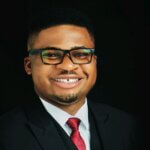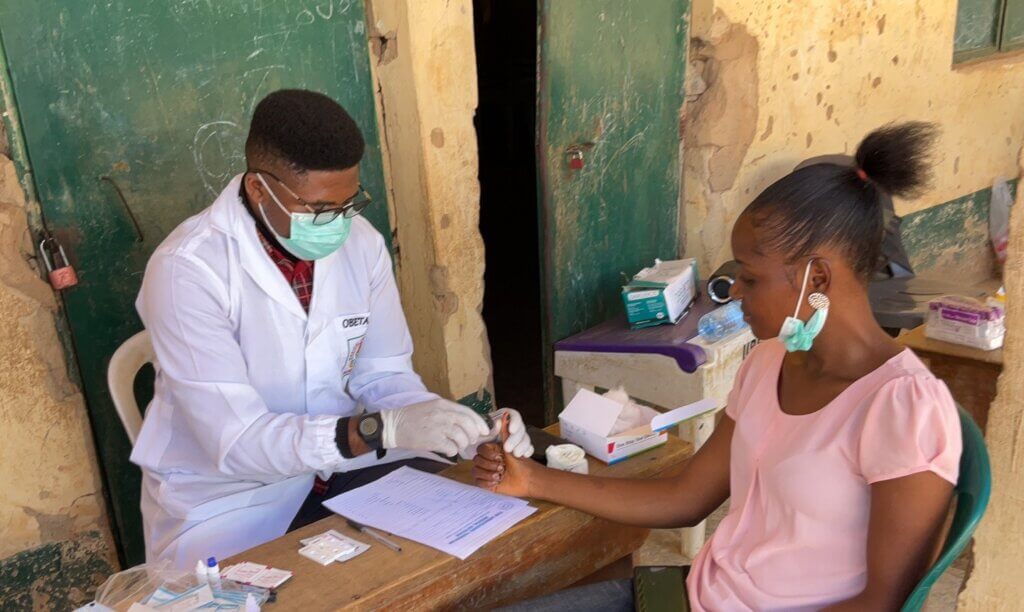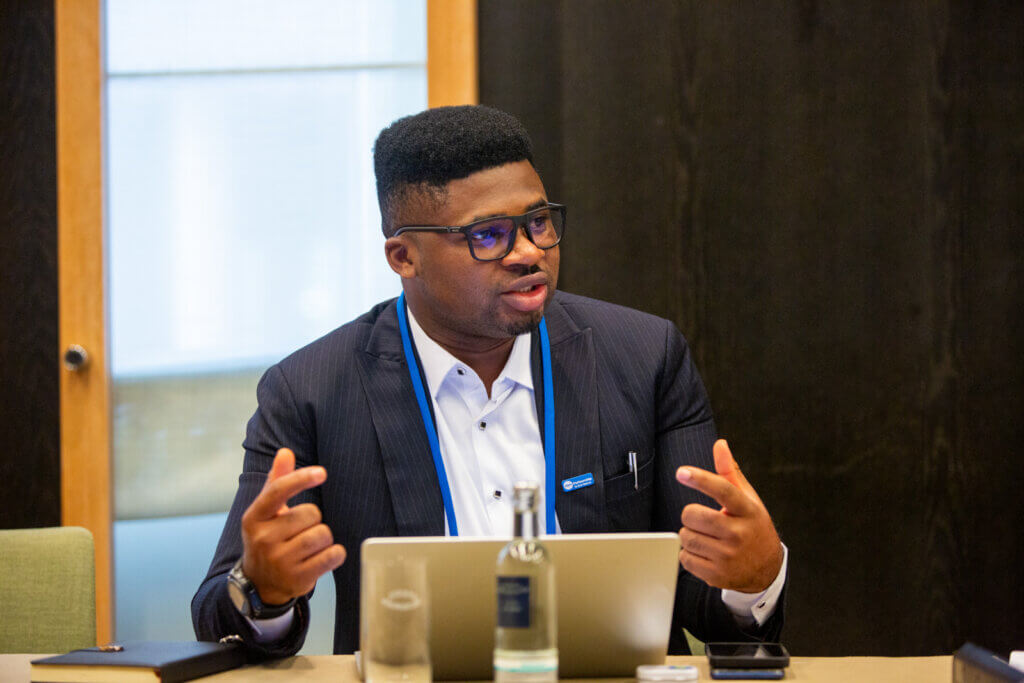Reflecting on my journey in Malaria Advocacy with Target Malaria’s Young Scientists Network


Recently, I was invited by Target Malaria to speak to their Young Scientists’ Network about my advocacy work in a webinar convening young scientists from Uganda, Burkina Faso, and Ghana. What I didn’t anticipate was just how much the experience would inspire me, and remind me of why I started my personal journey with malaria research and advocacy in the first place. This reflection is not just about my conversation with my peers, but also about my journey in the fight against malaria and the lessons I hope to pass on to the next generation of scientists and advocates even as I continue my quest to end malaria in Africa.
Growing up in Tudun Wada, a small community in Jos, Nigeria, Malaria was a constant threat that shaped my perspective in many ways. In those days, it was so common to catch the seasonal disease that it almost felt like it was part of our routine. Every fever was treated as though it were malaria. Despite being a preventable and treatable disease, too many lives were lost. My childhood memories are not just filled with stories of resilience, but also of losses. I can still recall how my friend lost his 14 year old younger brother to malaria and this sad experience traumatised not just his family and friends but the entire community.
Tudun Wada was a remote and underprivileged community, making it difficult to get the best of education. To attend class, secondary school students had to cross a river that would usually overflood during the raining season. On some days, we would have to wait for two or three hours for the water level to drop before daring to cross. Delays and missed days of school affected our learning and attendance, and quite a number of students lost interest entirely. Although frustrating, these moments taught me patience, resilience, and the importance of perseverance. As the first person to attend a university in my family, my immediate community and parents shared my hopes and aspirations.
Couldn’t we engage communities in deeper, and more meaningful ways to have an impact on malaria cases and deaths? Could youth play a more significant role in the fight against this disease?

Well, my perspective on malaria changed during one of my medical parasitology classes on “the epidemiology of malaria”. I understood not just the epidemiology of the disease but its societal and structural impact perpetuating a cycle of poverty and vulnerability on communities like mine.
In April 2017, while volunteering for a World Malaria Day event with the Association of Medical Laboratory Scientists of Nigeria, I found myself thinking there had to be more to the fight against malaria in Nigeria than just raising placards. Couldn’t we engage communities in deeper, and more meaningful ways to have an impact on malaria cases and deaths? Could youth play a more significant role in the fight against this disease?
These questions stayed with me and later inspired me to kickstart Block Malaria Africa Initiative, a malaria intervention initiative focused on implementing grassroots engagements aimed at educating communities on malaria prevention in Nigeria. Block Malaria Africa Initiative aims to empower African youth to take action against malaria, combating climate change, bridging the gap between government and communities, while promoting sustainable solutions. Through our work in Block Malaria Africa, I came to appreciate the power of engaging directly with the most vulnerable populations affected by malaria. Listening to the stories of these communities and co-creating solutions gave our advocacy a depth and authenticity that no placard ever could. A proof that real progress truly starts from the grassroots.
Over the years, I’ve had the opportunity to represent the voices of youths in high-level meetings and international conferences around the world. I remember my first global meeting vividly—a mix of awe and intimidation. Surrounded by seasoned experts and policymakers made me feel unsure about how to contribute meaningfully. But as I listened and learned, I found my voice.
What helped me connect was sharing my personal stories and experiences. Those moments taught me the power of storytelling in advocacy. With more exposure, I figured out that sharing lived experiences can bridge gaps, build empathy, and inspire action in ways that data alone cannot.
“Advocacy isn’t just about what you know—it’s about what you do with that knowledge.”
As my confidence grew, I began to learn the intricacies of negotiation, advocacy, communication, and networking. These skills became crucial in my role as West Africa Lead at the African Leaders Malaria Alliance (ALMA) Youth Advisory Council and as Co-Chair of the RBM Partnership to End Malaria Youth Workstream. These platforms have shown me the transformative potential of youth-led initiatives. Through mentorship programs, capacity-building workshops, and collaborative projects, we are preparing young leaders to drive change.
For young African scientists seeking to become malaria leaders and advocates, I would say that while research is vital, its true value lies in its application. Writing policy briefs, participating in decision-making platforms, and sharing findings at international conferences are all ways young scientists can ensure their work has a tangible impact. Advocacy isn’t just about what you know—it’s about what you do with that knowledge.
Reflecting on the webinar with the Young Scientists Network, I am filled with hope. These fellow young scientists from Uganda, Burkina Faso, and Ghana brought enthusiasm, curiosity, and fresh ideas to the conversation. Their questions reminded me of why I started this journey and why it is important for me to remain committed to this fight.
The fight against malaria needs all of us—our science, our stories, and our commitment to change. I urge everyone already involved to continue the work, knowing that every step forward brings us closer to achieving zero malaria.
